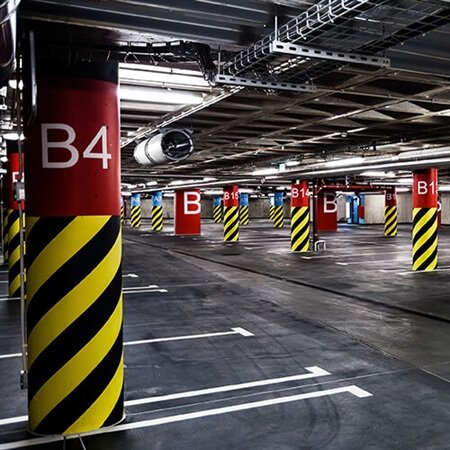
Today, industrial coatings are everywhere. They are a type of paint applied on different surfaces, including concrete and steel, to protect them from wear and tear, decay, and corrosion. They also add color and aesthetic appeal to the coated surface.
If you have a commercial or industrial project coming up, this guide will help you understand further what industrial coatings are.
Common uses for industrial coatings
Industrial coatings are applied to surfaces for the following reasons:
Durable protection
Industrial paints are used primarily to protect concrete and steel from corroding. When exposed to harsh chemicals and conditions, these surfaces become susceptible to rapid decay and rust. By applying protective coatings, industries can preserve and prolong the lifespan of their finished products.
Waterproofing
Industrial coatings are also used for waterproofing surfaces. Moisture is a problem for most property owners because it can lead to mold infection, thus ruining cement and masonry, doors and windows, siding, foundations, and roofs. And the most effective remedy is to apply waterproof paint products to seal out moisture.
Aesthetic purposes
Decorative paints come in different colors and textures, providing interior designers, paint applicators, and property owners several options when enhancing a building’s aesthetic appeal. They also provide weather resistance, as well as anti-dampening anti-fungal protection.
Decorative coatings can also be applied in plastic and wood to preserve their lifespan. Floor varnishes, wood stains, fence and shed paints, and decking varnishes are among the products that can make wood products more appealing and resistant to dust, water, and scratches.
Packaging industries are also using decorative finishes to make their products recognizable. They use industrial paints to make their packages and labels brighter and more attractive. Some even apply two-tone aesthetic paint finishes to make their products more eye-catching and unique.
Types of industrial paints
Industrial coatings come with different physical and chemical properties, but no single coating offers all the protection a building needs. That is why structures are coated with more than one coating type to create the most effective protective coating system.
Here are the five common coating types:
Polyurethane
Paint manufacturers use polyurethane coatings in different environments as a topcoat. For instance, they are applied over concrete floors and walls with a zinc-rich primer and epoxy middle coat.
Generally, polyurethane coatings belong to either of these two categories:
- Aliphatic – These coatings provide superb color retention and perform well in exterior environments.
- Aromatic – These are well-suited only for interior applications because they weather and chalk when exposed to sunlight.
Advantages of polyurethane coatings:
- Abrasion-resistant
- Durability to withstand abuse and wear and tear
- Color retention and high gloss
Epoxy
Epoxy coatings consist of a curing agent and an epoxy base. Manipulating either of these components can result in different coating properties, giving users a unique coating that can meet the demands of a wide range of environments.
Epoxy coatings are applied in two- or three-part systems.
In a two-part system, the base layer can be a zinc primer for excellent corrosion protection, and the epoxy would be applied over it. In a three-part system, a final topcoat is added to the two-part system. Paint applications can use a polyurethane topcoat for maximum performance and better aesthetics.
Advantages of epoxy coatings:
- Bond well with different surfaces
- Weather, abrasion, and heat-resistant
Zinc-rich
As its name implies, a zinc-rich coating is a type of coating that contains a high load of zinc dust, providing galvanic protection. This means that the zinc corrodes instead of the steel underneath it. Zinc-rich coatings are applied to form a barrier between the coated surface and its environment.
Zinc primers can be a part of a two-coat or three-coat system. These are commonly used in highly corrosive environments, like coal plants and bridges.
Advantages of zinc-rich coatings:
- Abrasion-resistant
- Highly durable
- Act as a polymeric and galvanic barrier to the steel
Polysiloxanes
Polysiloxane coatings are one of the latest additions to the market. These offer appearance-retention benefits but fail to give corrosion resistance and flexibility to industrial environments.
However, when combined with epoxies to create epoxy polysiloxane coatings, these can offer industry-leading resistance to abrasion, corrosion, chemicals, and UV.
Polysiloxane coatings may be pricier than other industrial paints, but they can be applied faster. Moreover, they tend to last longer, thus giving long-term value for most applications.
Advantages of polysiloxanes:
- Allow for two-coat applications – zinc base and polysiloxane
- High resistance to weather and abrasion
- Perform well under sunlight
- Good gloss and color retention
Acrylic
Acrylic coatings are the most familiar type of industrial paints.
These offer plenty of perks, including high gloss capability and being quick-drying. They also improve the corrosion resistance of coated products but require fewer ingredients. Most importantly, they promote better adhesion for primers.
The right industrial coating for the job
From making materials and surfaces durable to transforming their appeal, protective coatings can make this possible. A building can easily become a costly but poor investment if it easily degrades, so the application of industrial coatings is necessary.
However, choosing the right type of coating can be overwhelming with the availability of different industrial paints today.
By understanding the common coating types and how they influence one another to create an exceptional protective coating system, property owners, designers, and paint applicators can choose a system that’s well-suited for their project and painting needs.
For owners, architects, or designers looking for a coating system for their budget and application, booking a consultation with any of our painting contractors is a good start.
